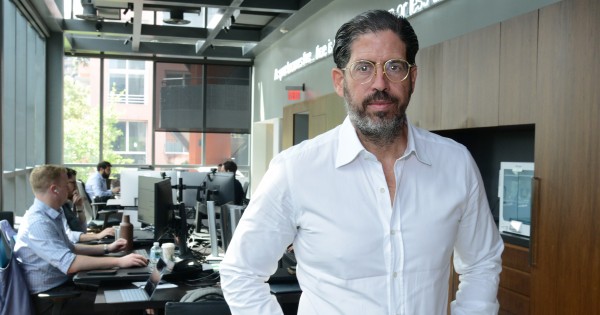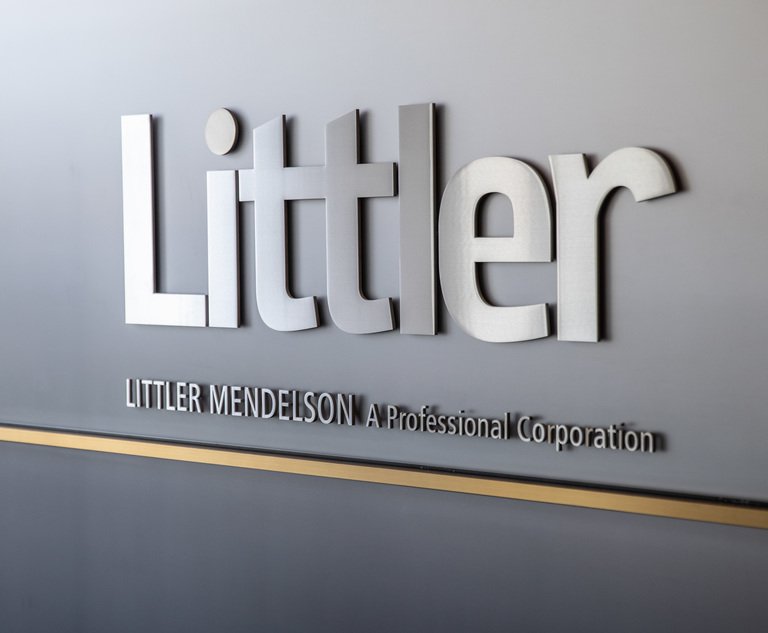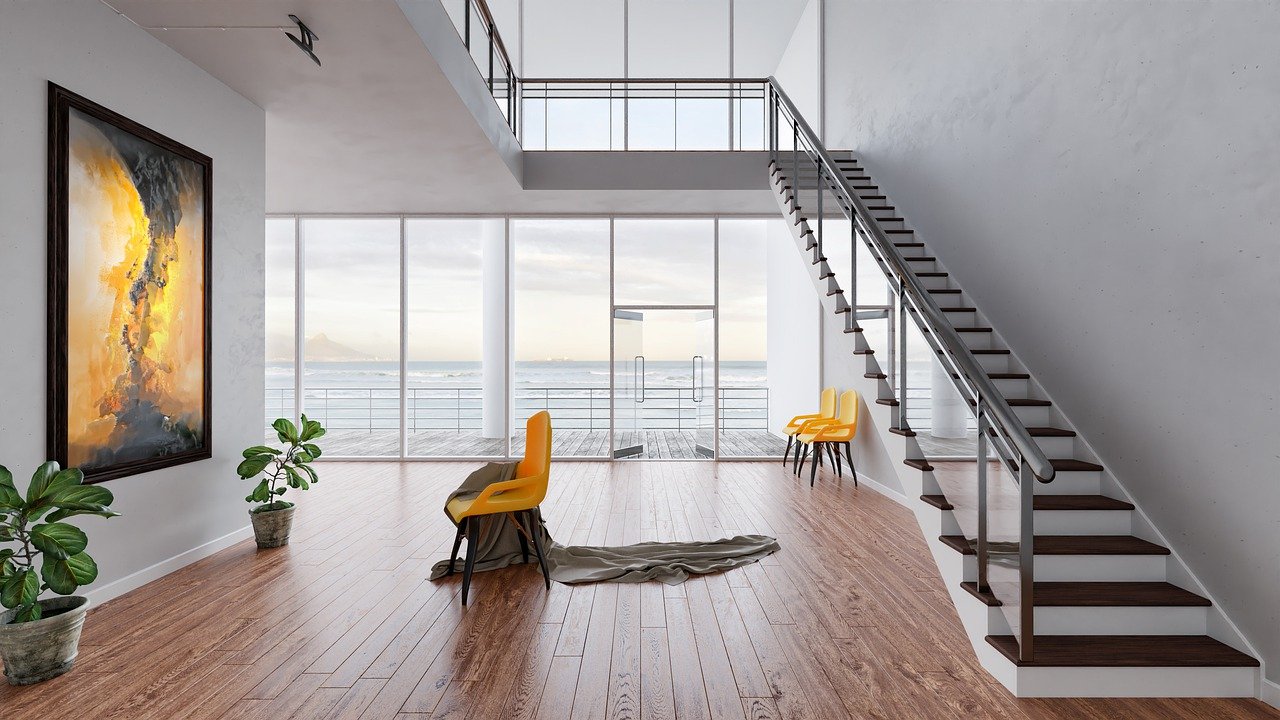The ‘King’ of Real Estate in Miami reveals why South Florida “is the region of the world’s future”
David Martin applied the opposite formula to what is taught in universities. Instead of specializing, he diversified his business. And being able to internationalize, he concentrated on real estate development where he was born and lives: South Florida. His objective, as he explains, is not to build buildings, but to create a community in Miami. The grandson of Cubans says it in perfect Spanish. Martin is 44 years old and graduated as a lawyer, but he speaks as if he were an urban planner with social interests.
In 2001, he founded Terra with his father Pedro Martín. From that uncertain kilometer zero, the family company became ultra-professional. Almost 25 years later, he is a central player in real estate in Florida: he has built around 800,000 square meters and earned the nickname King David. The buildings range from multi-family apartments, luxury condominiums, small residences, businesses, offices till hotels and factories. Sprinkled throughout Miami-Dade and Broward counties, their value is about $8 billion. Right now, Terra’s ongoing projects reflect that socio-economic breadth. The developer is building a Hotel with a Convention Center in Miami Beach and a popular housing complex in western Miami-Dade County, far from luxury, tourism and beach areas.
Martin’s offices are located in the rugged Coconut Grove neighborhood, just meters from Biscayne Bay. From that peaceful landscape, this businessman predicts that Miami will continue to grow at a sustained rate. But it will not only do so in the traditional field of tourism, but it will become a business mecca and a beacon for under-40 professional migration from other cities in the United States. Martin talks to LPO with two giant screens behind him. Muted, CNN and CNBC journalists describe the brutal presidential campaign already being waged across the country. The CEO and founder of Terra is sorry about the climate of political polarization. And at the same time, he demands a humanitarian solution to the crisis on the southern border of the United States.
El supermercadista más grande de Argentina levantó una torre de lujo en Miami y avanza con nuevos planes inmobiliarios
What is the commercial strategy behind the diversity of projects of Terra?
The firm is diversified in different types of Real Estate: industrial parks, shopping centers and various residential products. We have strategies for each neighborhood. In Coconut Grove we built almost 10 luxury projects, with very important architects worldwide. And we also made houses at the transit station for the working class. We love looking for solutions and seeing what is happening in the community. We love capitalism and development, but we like to find solutions to social problems. Sometimes a luxury project creates a large income for the city council to expand quality services for the people who live there. And on other occasions we look for solutions in houses and apartments for workers, teachers who may not have that other profile. We like to integrate families of different economic power into the community and see that everyone can move forward with the progress of our city and region.
Does this special feature bring you any other benefit?
It gives us more acceptance for projects that are controversial or that the community might distrust. They know that we are a firm with a sensitivity that other companies may not have.
Where does Terra’s comprehensive urban planning commitment in Miami come from?
We have a career here. It’s been 25 years. And we continue to bring our family here. I grew up here and I am proud to be from this region. We like to have middle class apartments because it is a cash flow. Residential condominiums are equivalent to a sale. We like to have diversification not only in the type of Real Estate, but also in the type of income. We have a large income when we finish a condominium, but at the same time we have long-term income from middle-class housing. It is intelligent in the economic thing to give strength to the company. And I learn a lot from each kind of house and how conceptions change. Today an apartment is a place where you can work and shop. Today luxury is a different word than it once was.
How has the meaning of luxury in housing changed?
Luxury is deeper, simpler and naive, it is much less extravagant than before. Luxury now is to be efficient. And I see that sensitivity in both high- and middle-income consumers. They want to be connected with that kind of approach. And it makes me a better person and a better businessman to see the different facets of the community, in its expectations, even in those of the NIMBYs (Not In My Backyard) to find solutions.
El gurú inmobiliario que predijo la crisis del 2008 dice que Miami es la tierra prometida como fue Nueva York en los ’60
Why does Terra focus almost exclusively on Florida?
I am focused 100% on Palm Beach, in Broward. Although we make investments in other parts of the United States, the development part is well focused on this region. The classic message of “focus on one type of Real Estate class and do regional diversification in all states, California, Georgia, Atlanta, New York, Chicago, Boston” is different. But I see that this is the region of the world’s future. And we have been able to take this migration of Americans, Europeans and those from Latin America as a benefit. We are well positioned.
Given the arrival of people with high purchasing power from other states, with high rental prices and interest rates, how do you characterize this moment in real estate development in Florida?
In other cities like Houston, Atlanta, New York or Chicago there is land and there is no shortage. In this region, there is a shortage. Two-thirds of Miami-Dade County is the Everglades National Park, very important for its environmental value. The shortage, plus demand and migration, created no price stability, which is what the consumer wants. Scarcity has created that. And the demand continues. Regarding inflation, I see that COVID generated another version of capitalism in companies. That version is that they can produce less and charge more. It is a problem, because in the US democracy and capitalism had generated the focus of the small business with which you can grow and compete. Lower prices and lower profit margins to create market efficiency. With COVID, that was called into question, with companies experimenting at what prices things rise and where demand stops. We are looking for a balance. The construction looked for it. With the high interest rates and shortages we have, we are not creating as many apartments. That creates another inflation, because there is no product to offer.
Is there a lack of properties in Miami to lower home prices?
When politicians ask me how we are going to solve the issue of social housing, I tell them: quantity! We need to generate more quantity. The greater competition will mean that they will not be able to raise rents as they are doing. It is a balance, a balance that we are looking for. Each neighborhood has its own demand quantity as a formula. Each area has its own character. There are areas that have over-zoning and others that are all historical preservation. We like to enter mature neighborhoods, because we have the sensitivity to obtain approvals, focusing on how to mitigate issues in those neighborhoods. For example, with the Five Park project in Miami Beach we created a park that had not existed before. With so much density of people, there was no park. And by doing so they let us go from the 7 regulated floors to 48 floors. In each neighborhood, looking for specific solutions allows us to achieve approvals and create the amount of supply that lowers the price.
How do you take the fact that Miami-Dade County’s population has decreased for the first time in decades?
There are many issues of perception that are sometimes misleading. For example, income has gone up in the county. If you look at the income of the last 20 years in Dade-County, the average income has risen more than the increase in rents.
Is the population decline also an error of perception?
Last year there were 400,000 new people entering Miami County. And 450,000 left. But the salary of the 450,000 who left was $35,000 a year. And the salaries of those who entered are $120,000 a year. So we see a migration of people with more power and educational training. And companies are also moving here. Then we will have more jobs. The University of Miami and Florida International University are preparing themselves. All private Middle Schools and High Schools are preparing, increasing their capacity to receive people. That’s the charm of South Florida. We like new people.
“Hay una necesidad grandísima de buscar alternativas de movilidad y vamos a operar con vehículos eléctricos en el aire”
Is Miami more newcomer-friendly than other US cities?
A new person can come to Miami and feel at home. It is not like in other cities that are closed and with many social barriers. In Miami we are open hands. That started when the Cubans came in the 60s. It is part of the DNA, of the culture of our community. We welcome and like migration. We want more Mexicans and Brazilians, Latinos, Argentines, Chileans, everything. We want them to be part of social organizations, to integrate into our community. It’s Miami’s little secret. People don’t talk much about how easy this city welcomes you.
What will Miami be like in 25 years? Do you imagine it similar to New York?
Miami will continue to be a tropical city, in the Caribbean. Furthermore, there is a shortage of land to build on. So I don’t see oversupply or overbuilding in the next 20 to 25 years. Yes, I see more companies here and the educational system is stronger. Universities are already investing a lot in engineering, in medicine. A very large investment of billions is being made to improve traffic. We are looking for solutions to the social housing we need for the workers who drive our community.
Do you foresee many companies moving to Miami?
The city will continue to grow, but more in industry, in technology, in money management. Many more companies. We will always have tourism, but I think the industry is going to explode here because a lot of the world’s capital is coming. That’s partly how New York grew so much. We are still a very young city. We have a strong future. And more than anything I see in industries, companies and jobs diversification with respect to tourism. South Florida has always been a tourism and trade market. But I see many industries coming.
Technology companies mainly?
Industries more than anything. There are companies looking at Miami, entering with offices of 500 or 1,000 square meters. They are experimenting to grow. Because there is also a transition coming. Today the ones who have liquid funds are older people. There is going to be a transition of money from baby boomers to the new generation. The next generation is looking at cities like Miami, where they want to live, work and settle. That migration is going to continue. And the industrial part is going to take more force than the tourist portion.
What should State policy do to guide this process? Last year, the Live Local Act was passed to promote accessible housing, in exchange for allowing high-rise construction. Does this sound like a good incentive to you?
Politics in Florida have supported economic development and they are well focused on positioning themselves to receive a lot of investment. Investment to improve traffic and education will help us. But many communities complain that the state government did not do this or that. But I wonder what you are doing from your own possibility, the person or the company. How are they being part of the solutions? The state did good things by passing laws to facilitate certain developments at the municipal policy level, although later at the local level they were not done due to manipulation and misinformation. But now with social networks, each person’s responsibility is more visible. Today the bet is community, business and government. And how those three groups can work together and trust each other. It’s what I try to create. That trust is the most important thing because the moment it is lost, and it is lost sometimes, communication is cut off and solutions do not arrive.
Fuga de talentos: casi siete de cada diez latinos que quieren invertir en EEUU lo hacen para emigrar
Could the atmosphere of a very polarized presidential campaign harm the real estate business in Miami?
The decisions made towards the campaign can influence. Nowadays businesses have to work well and have a certain profile to be able to sustain themselves with such a high interest rate. That dictates the types of businesses that will move forward. But the election gives you an illusion that next year or the next will be better. In our business, we always have to look ahead to 20 years. The challenge is how to position your company to have a strategy and a 20-year plan. But I do believe that choice impacts consumer psychology.
How does the presidential campaign impact consumer psychology?
The climate of polarization impacts the community in general. The polarization thing is hard because I am always looking for the most moderate center to be able to develop. At that moment there is respect and there are solutions. If we can agree on 80% of the things, we will move forward with that and we can discuss the other 20%, although it will not be solved. But when we are in polarization, although we agree on 80% of things, they don’t want to talk!
Is polarization prejudicial to the business?
It is a problem, and that is what I try to avoid. But in the end the community, society, the internet, everything creates a polarization that makes work a little harder. It is part of the game of democracy. Being able to talk about different ideas and that one wins. It is a competition of ideas. Some are going to win and some are not. That makes you work a little harder to push and get things done. I travel all over the world and see dictators. And how easy it is: “I want a road there.” I build it and I don’t care if the neighbors want it or not. But our system is not like that. That makes it more complicated, but more beneficial because everyone has a voice.
The risk is that in politics it is not the idea that prevails, but rather the voice that shouts the loudest…
It often happens. But in the end, in a year or two, things change again. I have learned that the political thing is fluid.
Colombians and Argentines are looking to invest in Real Estate in South Florida. Why does that happen?
Miami has always been part of Latin America. It’s like a Latin city. You speak Spanish and they understand you on the street. Political problems in Latin America have also created a bit more demand. And the currency crisis pushes people to come to invest or buy. What I see as a new thing is much more the possibility of moving, of bringing children to study here and being part of the system. And that will continue. I don’t see it stopping. I have many friends who live in South America and are afraid of insecurity. There is no trust in their governments as there was before. That creates a dynamic of buying to move and not just to invest. Many people are looking for a way to move and that generates the debate about visas. It’s something we have to solve. Latin America has brought many intellectuals, a lot of culture that enriches and contributes a lot to our community. Immigration will continue.
Should more humanitarian solutions be sought for the migration crisis?
Yes, 100%. These are tough topics and there are difficult decisions that must be made. But the humanitarian part is the most important, so that the world continues to see us as a role model.
Translation: Bibiana Ruiz.



